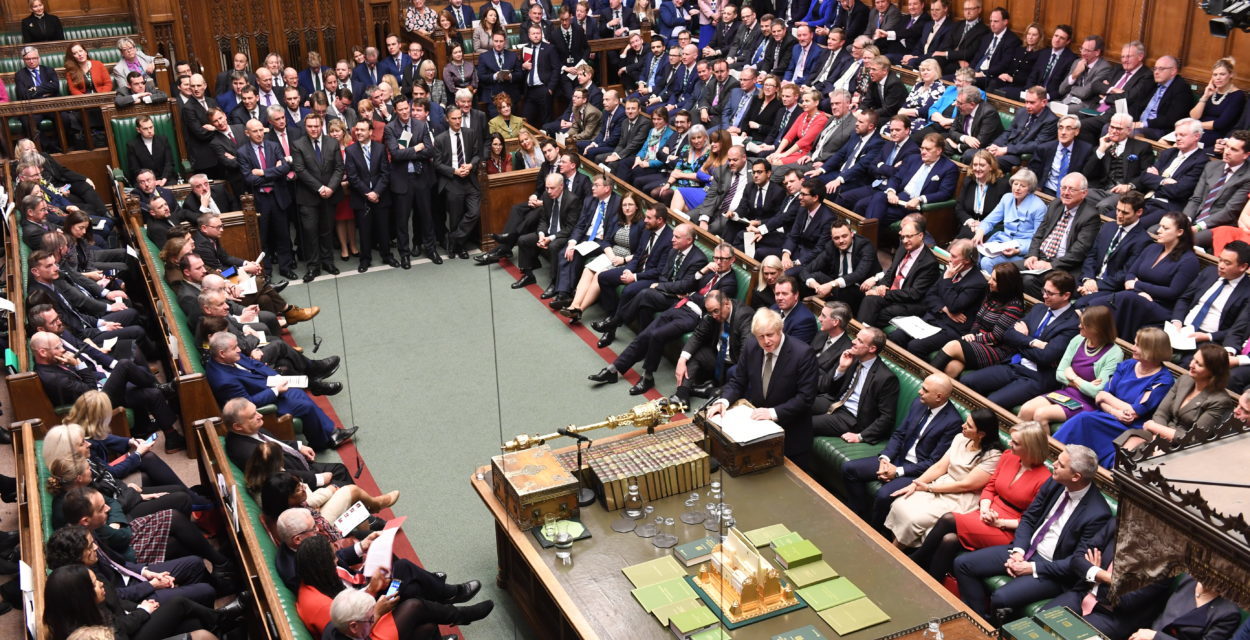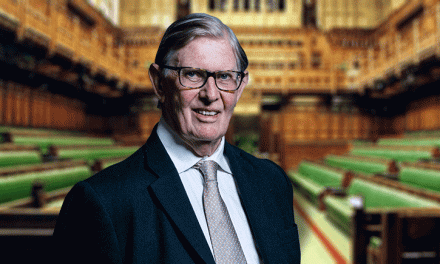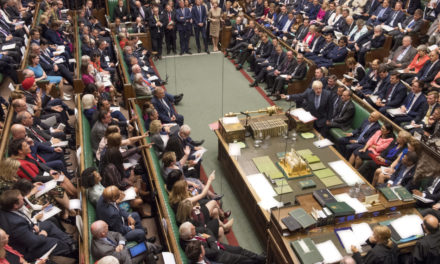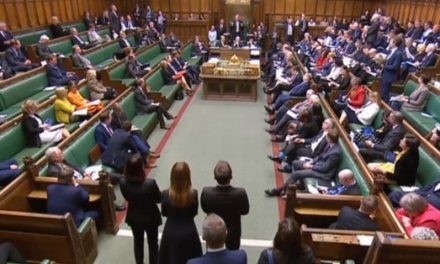It has finnaly hapenned. Parliament passed the Government’s European Union (Withdrawal Agreement) Bill yesterday. As expected, the House of Commons voted down all five Lords Amendments to the Bill. During the debate, Sir William Cash made the following intervention:
The Secretary of State for Exiting the European Union (Steve Barclay): I beg to move, That this House disagrees with Lords amendment 1.
Mr Speaker: With this we may take Lords amendments 2 to 5, and Government motions to disagree.
Steve Barclay: Less than a fortnight has passed since we last debated the Bill in this House. Since then the House of Lords has sat for nearly 40 hours to debate more than 100 amendments. The noble Lords in the other place have asked this House to think again on five matters and I will address each in turn.
Turning first to Lords amendment 1 on citizens’ rights tabled by the noble Lord Oates, I know that noble Lords share the Government’s commitment to putting the rights and welfare of citizens at the heart of our withdrawal negotiations. The first part of the amendment establishes a declaratory system and the second part requires Ministers to bring forward regulations making provisions for those with declaratory rights to apply for a document evidencing their rights. This amendment would mean the successful EU settlement scheme in its current form would need to be abandoned, because there would be no need to register if people could later rely on a declaration that they were already in the UK. This would make null and void the 2.8 million applications and the 2.5 million grants of status that have already been completed. The Government would, under this amendment, also be unable to issue digital status to EU citizens without also issuing physical documents, including to those already holding a digital status under the current scheme. That would increase the risk of fraud and raises costs to Government and citizens.
(…)
I turn to their lordships’ amendments 2 and 3, on the interpretation of retained European Union law. Amendment 2, tabled by Lord Beith, would remove the power to set which courts may diverge from retained Court of Justice of the European Union case law, and how. Amendment 3, tabled by Lord Mackay, would insert a mechanism whereby any court thinking that CJEU case law should be departed from may ask the Supreme Court to decide.
The other place has one of the greatest concentrations of legal talent in the world, and it is only right that the Government’s intentions on such a sensitive matter should be examined by their lordships, and that challenging alternatives should be proposed. The Bill ensures that time is built in to allow consultation of the senior judiciary in all jurisdictions. It is worth repeating what my noble Friends Lords Callanan and Keen said: we will, of course, also consult the devolved Administrations.
(…)
I turn to Lords amendment 4, tabled by the noble Lord Dubs. Although the Government humbly disagree with the amendment, we recognise his sincerity about and dedication to this issue and the constructive scrutiny that he has provided on behalf of vulnerable children. The amendment would remove the provision that amends the European Union (Withdrawal) Act 2018 to require the Government to report on their policy on unaccompanied asylum-seeking children.
I can only say again, as I did in our previous debates, that the Government’s policy is unchanged. Delivering on it will not require legislation. The Government have a proud record on supporting the most vulnerable children. The UK has granted protection to more than 41,000 children since the start of 2010. In 2018, the UK received more than 3,000 asylum applications from unaccompanied children, and the UK deals with 15% of all claims in the EU, making us the country with the third highest intake in Europe. Indeed, in the year ending September 2019 the intake rose to more than 3,500.
(…)
Lords amendment 5 seeks to recognise the Sewel convention. The convention is already found in statute, in the Scotland Act 1998 and the Government of Wales Act 2006. However, the convention in no way limits parliamentary sovereignty. As hon. Members will recall from the Miller case, the Sewel convention is fundamentally political. It was found then not to be justiciable and to reflect it in this statute should not change that.
(…)
Sir William Cash (Stone) (Con): I simply want to say that I concur entirely with what the Secretary of State has said, and to refer very briefly to Lords amendments 2, 3 and 5.
Let me say first that the Government’s arguments about the question of the lower courts in relation to the Supreme Court are completely valid. I think that an enormous number of complicated problems will emerge from Lord Mackay’s amendment. The use of expressions such as “is of the opinion” and
“set out the reasons for that opinion”
will create a quagmire of interpretation.
As for Lords amendment 5, when I had the pleasure of advising on the Canadian constitution back in about 1982, I engaged in extensive discussions with Mr Geoffrey Marshall of The Queen’s College, Oxford, who is the greatest authority on the question of conventions. I entirely agree with the Government’s position on that, in the light of my own experience of what conventions actually mean, and I have to say that I have heard a lot of hogwash this afternoon in support of the alternative view.




